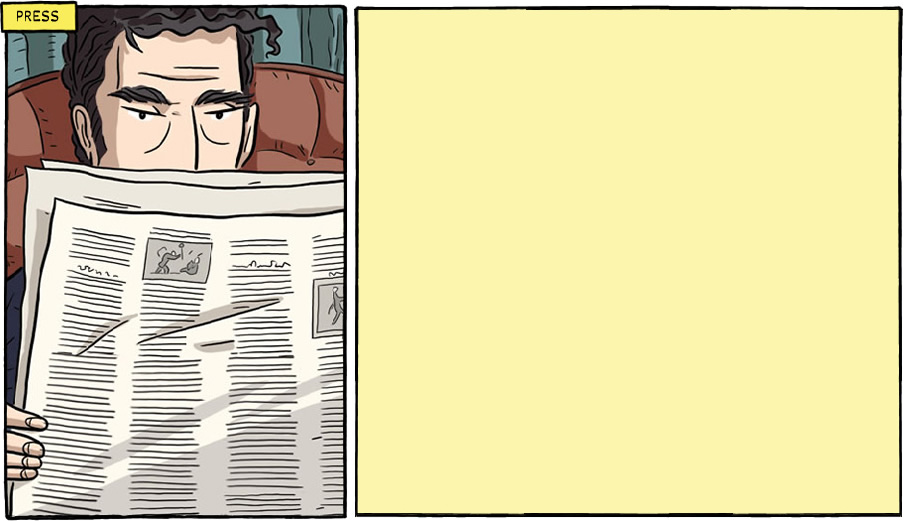
| Guardian Review: Logicomix |
| Written by Alex Bello, GUARDIAN |
| Saturday, 03 October 2009 09:37 |
|
Mathematics has never been so exciting. Bertrand Russell's Principia Mathematica (which he co-wrote with Alfred North Whitehead) is probably the most impenetrable book ever written by a winner of the Nobel prize for literature. In it, the authors famously take 362 pages to prove 1 + 1 = 2, using a method so arcane that Cambridge University Press could not find anyone to evaluate the manuscript and Russell and Whitehead were made to pay for the printing themselves. For this reason, the Principia is not an obvious subject for a mainstream popular science book. Yet the intellectual and emotional journey that Russell took while writing it has been turned into a graphic novel by Apostolos Doxiadis and Christos Papadimitriou that is both a thrilling adventure and a serious history of the philosophy of mathematics. Logicomix's main narrative is Russell's quest for the truth, which in his case is the truth about the foundations of mathematics. His adventure is portrayed as if the fate of the world depends on it and our tortured superhero must battle his inner demons to achieve the task. The authors tell the story with a humour and lightness of touch that pokes fun at the philosophers and mathematicians involved, but never trivialises the philosophy or the mathematics. When Russell declares: "I was now ready to battle against my own enemy . . . Irrationality, in its highest form", it is both tongue-in-cheek and profound. Russell, who died in 1970 aged 97, was in later life better known as a public thinker and political activist, but he cut his teeth as a mathematical logician. His most famous contribution to the field is known as Russell's paradox: imagine there is a town with one barber, and where the law states that everyone who doesn't shave himself is shaved by the barber. Who shaves the barber? If he doesn't shave himself he shaves himself, and if he shaves himself he doesn't shave himself. We are led into a contradiction. Russell came up with the paradox in 1901. While most of us might find it an amusing quirk of language, its effect on the philosophy of mathematics was devastating. Contradiction is a fatal bullet wound for any logical system, and it seemed to kill off hope for a watertight, logical foundation for arithmetic. Indeed, the Principia was Russell's attempt to repair the damage he had inflicted on his own dream. The lesson of Russell's paradox is that logicians need to be careful to avoid self-reference, which is a rule that doesn't apply, for example, to the authors of graphic novels. Logicomix embraces self-reference. Both Doxiadis and Papadimitriou appear in the book as themselves, writing a book about Russell, and Russell appears in the book giving a lecture at an American university in September 1939 and chronicling his "foundational quest" with flashbacks to his youth. The device could be confusing, or irritating, but it actually helps the flow by giving three levels of narrative to let the philosophy sink in. The colour illustrations are also beautifully done. Logicomix is a novel, rather than a biography, since dates and events have been moved around to let Russell interact with contemporaneous figures he never met but whose ideas influenced his theories. He travels, for example, to Germany to meet the logician Gottlob Frege, and the founder of set theory, Georg Cantor, languishing in a mental institution. On his way home he attends David Hilbert's famous speech on the problems of mathematics at the 1900 International Congress in Paris, when in fact he most probably wasn't there. By contrast, one encounter in the book that did happen in real life was with a young Austrian called Ludwig Wittgenstein, who arrived in Cambridge shortly after the Principia was published. The relationship between the men was at first one of teacher and pupil, but soon the domineering Wittgenstein questioned the point of Russell's endeavours and established his own philosophy of knowledge. Wittgenstein's intellectual brilliance and erratic behaviour provide the authors, and Russell, with an opportunity to meditate on the link between logic and madness, one of the book's themes. Russell's quest was ultimately a tragic one, and it was another Austrian, Kurt Gödel, who sank the project once and for all. Gödel's Incompleteness Theorem proved that there will always be unanswerable questions in mathematics, thus showing that no logic system is capable of creating the sort of firm foundations Russell had hoped for. Gödel appears towards the end of Logicomix, as he did in Doxiadis's previous novel, Uncle Petros and Goldbach's Conjecture, in which the fictional Petros also meets the leading mathematicians of his day. Maths can be a very dry subject, but Doxiadis has shown that by using fiction to provide an emotional context to mathematical discoveries it can make for a gripping read. Uncle Petros was a bestseller and the much more ambitious Logicomix deserves to be one too. Alex's Adventures in Numberland by Alex Bellos will be published in March by Bloomsbury.
Read the review on The Guardian website here. |




